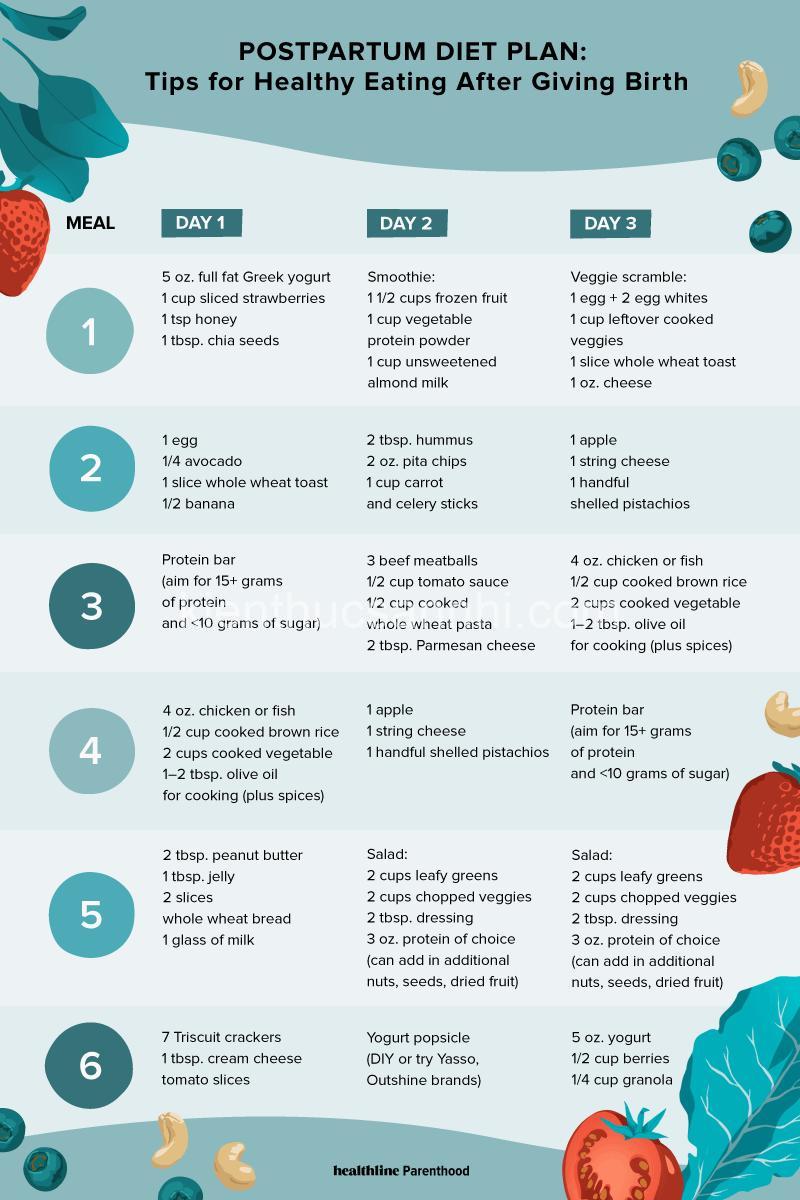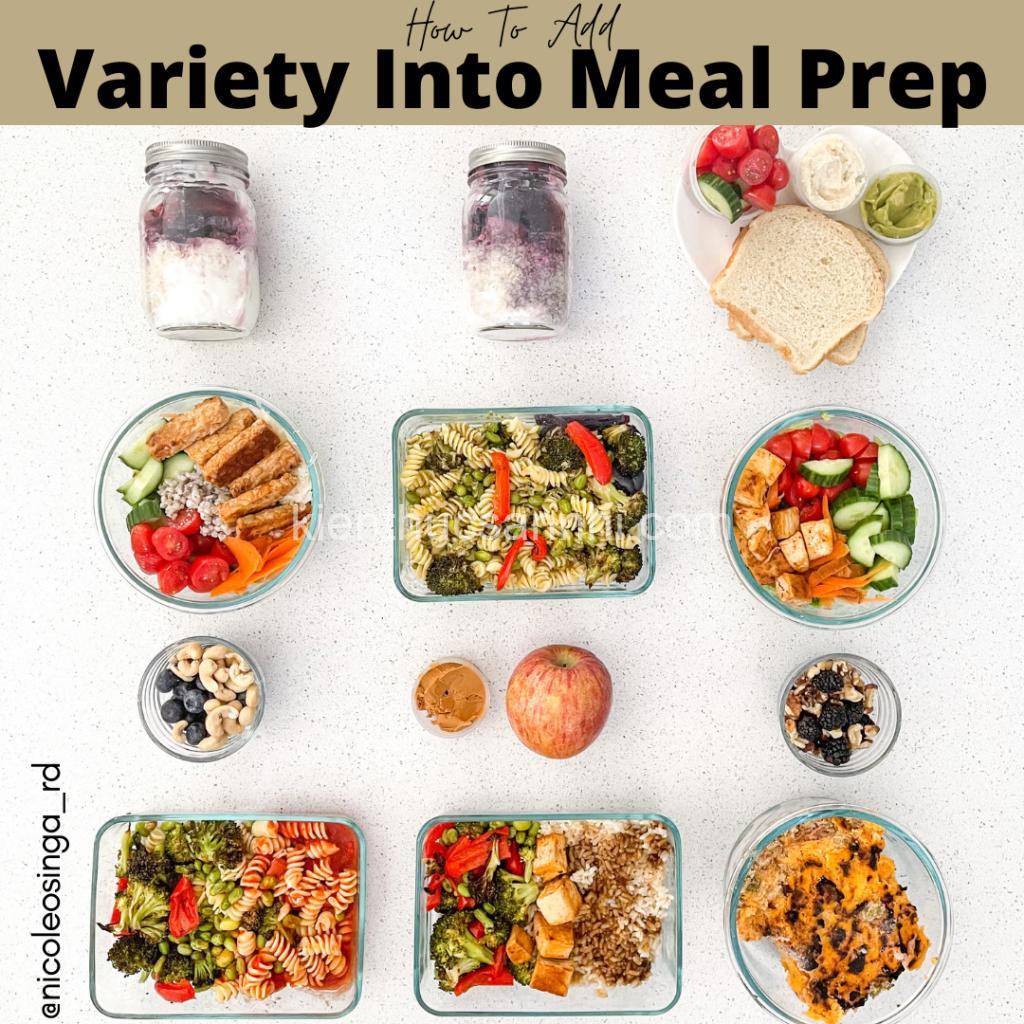
Balancing Traditional Postpartum Foods & Modern Nutrition. In today’s article, kienthucsannhi.com will explore with you in the most detailed and complete way. See now!
Understanding Your Nutritional Needs During Postpartum
The postpartum period, the time after childbirth, is a crucial stage for both you and your baby. Your body needs time to heal, and you’re likely breastfeeding, which requires extra energy and nutrients. It’s important to understand your nutritional needs during this time to support your physical and mental recovery.
What are the increased energy and nutrient requirements during postpartum?
Your energy needs increase significantly during postpartum, especially if you’re breastfeeding. This is because your body is working hard to produce milk for your baby. In addition to calories, your body needs a variety of essential nutrients to support your recovery and milk production.
Here’s a look at some key nutrients:
- Iron: You may experience iron deficiency due to blood loss during childbirth. Iron is crucial for red blood cell production and helps prevent fatigue.
- Calcium: Calcium is essential for bone health, particularly after pregnancy. It also plays a role in milk production.
- Folate: Folate is crucial for cell growth and development, both for you and your baby. It helps prevent neural tube defects in newborns.
- Vitamin D: Vitamin D is important for calcium absorption and bone health. It’s often recommended for breastfeeding mothers, as levels can decrease after pregnancy.
How does good nutrition impact your physical and mental recovery?
Adequate nutrition supports your body’s ability to heal from childbirth. It also plays a crucial role in your emotional well-being. Postpartum depression can be influenced by nutritional deficiencies, so it’s crucial to prioritize a balanced diet to support mental health.
How does a balanced diet support breastfeeding?
A balanced diet is essential for milk production and your baby’s growth. By providing your body with the nutrients it needs, you can ensure you’re producing milk that is rich in the essential nutrients your baby needs. This includes proteins, fats, carbohydrates, and vitamins and minerals.

Exploring Traditional Postpartum Foods and Their Nutritional Value
Traditional postpartum foods are often rooted in cultural beliefs and practices designed to support recovery and promote well-being. These foods typically focus on providing warmth, nourishment, and comfort.
What are some common traditional postpartum foods and their cultural significance?
Traditional postpartum foods vary widely across cultures, each with its own unique ingredients and preparations. For example, in many Asian cultures, congee, a rice porridge, is a staple postpartum food believed to be gentle on the digestive system and provide nourishment. In Latin American cultures, pollo con arroz, a chicken and rice dish, is often served to promote energy and recovery.
What key ingredients are commonly found in traditional postpartum foods and what are their nutritional benefits?
Many traditional postpartum foods share common ingredients, known for their beneficial properties.
Here are a few examples:
- Warming spices: Spices like ginger, turmeric, and cinnamon are commonly used to promote warmth and digestion. Ginger is often used to alleviate nausea, while turmeric has anti-inflammatory properties.
- Bone broth: Bone broth is rich in protein, minerals, and collagen, which can support tissue repair and joint health.
- Herbs: Herbs like fennel, cumin, and coriander are frequently used in traditional postpartum dishes, believed to aid digestion and promote milk production.
Balancing Tradition with Modern Nutrition
While traditional postpartum foods can offer valuable nutritional benefits, it’s crucial to ensure they’re balanced with modern nutritional recommendations for optimal health.
What are the potential concerns of traditional postpartum diets?
Traditional postpartum diets may sometimes have limitations in terms of nutritional balance. Here are some potential concerns:
- Excess salt: Many traditional postpartum foods are high in salt, which can lead to water retention and potential health issues.
- High fat content: Some traditional postpartum foods, like fatty meats or rich desserts, can be high in saturated fat, which can contribute to heart health issues.
- Limited variety: Traditional postpartum diets may sometimes lack the variety needed for a balanced intake of nutrients.
- Cultural restrictions: Certain traditional foods may contain ingredients that you’re allergic to or restricted from consuming for religious or personal reasons.
How can you incorporate traditional postpartum foods into a balanced and modern diet?
The key to enjoying traditional postpartum foods while maintaining a balanced diet lies in moderation, substitution, and supplementation.
- Moderation: Enjoy your favorite traditional dishes in moderation to avoid overconsuming certain nutrients like sodium or fat.
- Substitution: Choose healthier alternatives for high-fat or high-sodium ingredients. For example, replace fatty meats with lean proteins, and use low-sodium broth or seasoning.
- Supplementation: Consult a healthcare professional or registered dietitian to assess whether you need supplements to address potential nutritional gaps.
What are some key principles for creating a balanced postpartum diet that incorporates traditional foods?
Focus on a diet rich in whole foods, including fruits, vegetables, whole grains, lean protein, and healthy fats. Ensure you drink plenty of water, as hydration is crucial during postpartum. Plan your meals to ensure you’re getting a balanced intake of essential nutrients.
Seeking Professional Guidance
When it comes to postpartum nutrition, seeking professional guidance is essential. A registered dietitian can provide personalized advice based on your individual needs, preferences, and any dietary restrictions.
Why is it important to consult a registered dietitian or healthcare professional for personalized advice?
A registered dietitian can help you:
- Create a personalized nutrition plan: This ensures you’re meeting your nutritional needs while supporting your recovery and breastfeeding.
- Address specific concerns: They can help you address any concerns related to dietary restrictions, food sensitivities, or potential nutritional deficiencies.
- Provide cultural considerations: A dietitian can help you integrate your cultural food practices into a balanced and healthy diet.
What are some resources for finding a registered dietitian or obtaining additional information on postpartum nutrition?
You can find a registered dietitian in your area through online directories like the Academy of Nutrition and Dietetics website.
Here are some additional resources for reliable information on postpartum nutrition:
- Websites: The National Institutes of Health, the American Academy of Pediatrics, and the World Health Organization.
- Books: The Nourishing Traditions Cookbook by Sally Fallon Morell, The Postpartum Survival Guide by Amy Jordan.
Tips for Incorporating Traditional Foods into Your Postpartum Diet
Here are some tips for incorporating traditional foods into your postpartum diet while prioritizing your overall health:
- Focus on whole foods: Choose whole grains, lean protein sources, fresh produce, and healthy fats.
- Moderation is key: Enjoy traditional foods in moderation to avoid overconsuming certain nutrients like sodium or fat.
- Substitution: Choose healthier alternatives for high-fat or high-sodium ingredients commonly found in traditional postpartum foods.
- Supplementation: Consult a healthcare professional or registered dietitian to assess whether you need supplements to address potential nutritional gaps based on individual needs and dietary restrictions.
Cultural Considerations and Respecting Traditions
It’s essential to recognize the importance of cultural traditions and respecting them. Postpartum food choices often reflect deep-rooted cultural beliefs and practices passed down through generations.
- Importance of understanding cultural practices: Acknowledge the impact of cultural traditions on food choices and postpartum recovery.
- Respecting cultural diversity: Recognize and appreciate the diversity of postpartum food practices across different cultures.
- Adapting traditions to modern needs: Explain how traditional foods can be adapted to meet modern nutritional recommendations and individual preferences.
Final Thoughts
Navigating postpartum nutrition can be complex, but with a balanced approach, you can enjoy the comfort of traditional foods while prioritizing your health and well-being. Remember to consult a registered dietitian or healthcare professional for personalized guidance, and don’t hesitate to adapt traditional practices to suit your individual needs and preferences.
Remember to leave a comment below and share this article with your fellow moms! To explore more valuable information about raising animals and finding the best pet products, visit my website kienthucsannhi.com.





